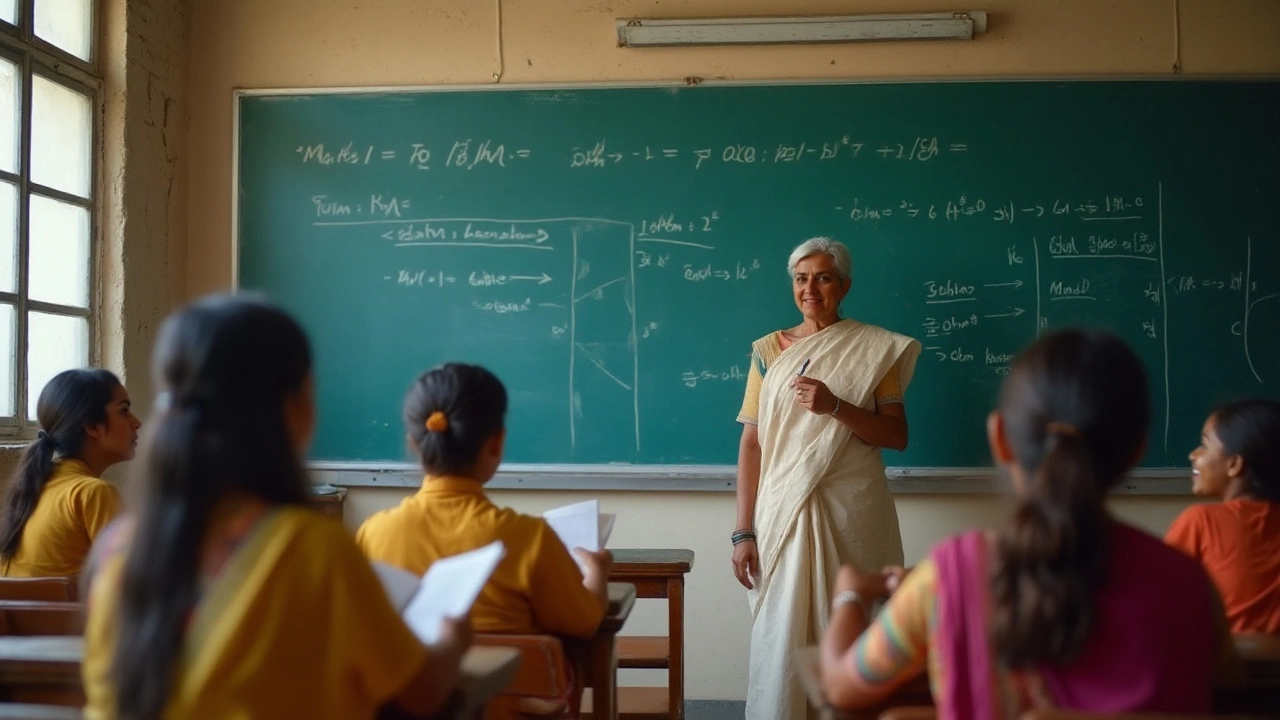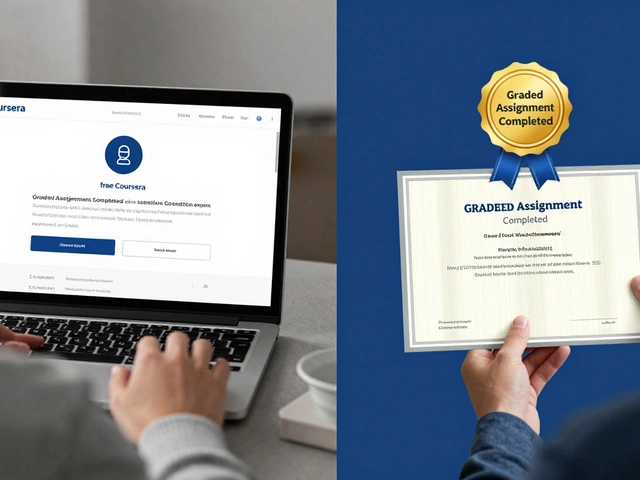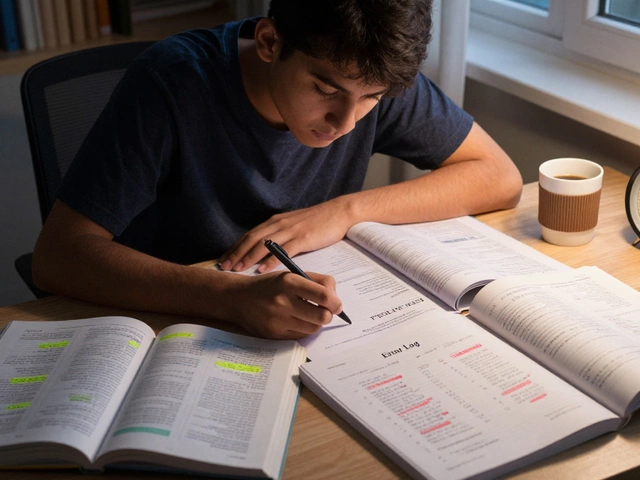When it comes to cracking the IIT JEE, choosing your subjects wisely can make all the difference. Aspiring engineers often find themselves standing at significant crossroads, pondering which subject could pave the way to success. Do you deep dive into the enigmatic world of Physics, unraveling the mysteries of the universe? Or do you focus on Chemistry, where reactions and equations open up realms of possibilities? And let’s not forget Mathematics, the foundational pillar that supports engineering pursuits. Each subject has its allure, its challenges, and its significance in shaping a future engineer. But how do you know which one is best suited for you?
Understanding your own strengths is the first step. While some students naturally gravitate towards logical numbers and patterns, others have a penchant for experimenting and exploring chemical interactions. It’s about aligning your natural aptitude with the demands of the exam. This guide delves into the essential subjects for IIT JEE preparation, providing insights and tips to help you make an informed decision and work towards success.
- The Importance of Subject Selection
- Physics: Understanding the Laws of Nature
- Chemistry: The Art of Reactions
- Mathematics: The Language of Engineers
- Tips for Balancing Your Study Approach
The Importance of Subject Selection
When preparing for the IIT JEE, a decision of tremendous weight bears upon every aspirant: which subject should be prioritized? This is not merely an academic choice but a strategic maneuver that can dramatically shape one’s chances of success. To underscore the significance of this choice, consider the fact that the IIT JEE is divided chiefly into three core domains: Physics, Chemistry, and Mathematics. Each of these subjects carries an equal weight in the examination, accounting for one-third of the total marks. Therefore, neglecting any one subject could severely handicap a candidate’s performance.
The decision of which subject to emphasize often stems from a student's intrinsic aptitudes and interests. For instance, a student with a natural curiosity about how things work in the universe may find immense joy in tackling Physics. On the other hand, someone with a penchant for solving equations and understanding abstract concepts might lean towards Mathematics. Then, there are those who find solace in the blend of theory and experimentation that Chemistry offers, enjoying the challenge of deciphering chemical reactions. However, blindly choosing a favored subject without regard to proficiency and strategic balance can lead to unforeseen pitfalls.
The key lies in understanding one’s strengths and weaknesses through self-assessment and mock tests. Candidates are encouraged to evaluate their performance across several mock exams, identify weak spots, and tailor their studies accordingly. For example, an analysis of past IIT JEE results indicates that students who evenly distribute their efforts across all subjects tend to score higher. In fact, comprehensive preparation across all three domains not only boosts a student’s score but also instills confidence, essential during the high-pressure environment of the examination.
Engaging with peers and mentors is another way to gain clarity in subject selection. Many IIT alumni often state that discussions with peers helped illuminate different perspectives, as well as revealed hidden interests. The words of a well-respected IIT coach might echo in your ear:
"Your choice of focus defines your path. Embrace all subjects for a balanced approach; skewed focus is a perilous path."This emphasizes that while a preference is normal, balance is critical. Sometimes, stepping out of one’s comfort zone and dedicating time to a less favored subject could yield substantial overall benefits.
Moreover, here's a unique point of view: the joy of learning comes from understanding, not rote memorization. As an aspiring engineer, being able to interconnect concepts across Physics, Chemistry, and Mathematics leads to a better grasp of their real-world applications. Whether you aspire to develop algorithms or design futuristic architectures, these foundational subjects form the building blocks of innovation. The comprehensive study not only prepares you for the IIT JEE but arms you with a versatile toolkit for future challenges.
Therefore, the importance of selecting the right subject for IIT JEE preparation is not confined to success in the exam itself but extends to life thereafter. Make a wise, informed choice, learn passionately, and prepare strategically. The balance will not only help you navigate the rigorous admissions process but also lay a solid foundation for your engineering career.
Physics: Understanding the Laws of Nature
Physics is often regarded as the cornerstone of engineering, offering an incredible insight into the workings of the universe. It’s akin to finding the secret code that governs everything from the fall of an apple to the launch of a rocket. The subject is an integral part of the IIT JEE preparation, not only because it lays the foundational concepts for engineering but also due to its intriguing blend of theoretical and practical knowledge. Physics challenges students to think critically, encouraging them to piece together puzzles that explain natural phenomena. It forms connections between complex theories and real-world applications, making it both rewarding and indispensable for any aspiring engineer.
At the heart of Physics lies its core concepts like Newton’s laws of motion, electromagnetism, and thermodynamics. These are not just abstract ideas but principles with direct implications in electronics, mechanical systems, and energy solutions. Take, for instance, electromagnetism; it not only illuminates your lamp but also powers engines and drives advancements in telecommunications. The beauty of Physics in the context of IIT is the way it equips students to grasp these profound concepts and apply them innovatively. To excel, students need more than rote learning; they require a deep comprehension to solve practical scenarios accurately. This makes the study of Physics both exciting and demanding.
"The important thing is to never stop questioning." - Albert Einstein
One cannot underestimate the efforts required to master Physics for the IIT JEE. It involves a systematic study plan focusing on varied topics such as mechanics, optics, and quantum physics, among others. Making concepts clear and practicing them diligently helps, as does engaging with practical problems. Most students benefit from a strategic approach, which includes dividing study materials into manageable sections and prioritizing high-scoring areas. Practice plays a crucial role in reinforcing what is learned, while taking regular mock tests helps simulate exam conditions and refine time management skills, so crucial for any competitive exam. Engineering entrance exams demand these refined skills, and Physics practices help in cultivating them.
Physics and Mathematical Synergy
Physics is inextricably linked with Mathematics, another essential subject for any engineering endeavor. Many problems that appear purely theoretical in Physics often require sharp mathematical insight to solve. This means that Physics does not exist in isolation; it thrives on its connections with Mathematics, making the duo a powerful force in your IIT JEE preparation. Developing strong problem-solving skills and applying mathematical knowledge are critical for tackling Physics questions effectively. This synergy not only boosts confidence but enhances the analytical abilities needed to excel in challenging IIT problems.
Real-world applications further illuminate the indispensable role of Physics. It’s present in developing technologies that improve our lives, from healthcare machinery to greener energy solutions. As advancements continue, the future of Physics in engineering seems boundless. The quest for new knowledge and its application in everyday life keeps the discipline vibrant and dynamic, inspiring countless students to pursue it. For IIT aspirants, the subject offers a robust platform to explore, innovate, and build careers that push the boundaries of what’s possible.

Chemistry: The Art of Reactions
Chemistry often captivates those who have a keen interest in understanding the very fabric of matter. It's a dance where elements and compounds come together, often in surprising and explosive ways. This subject, one of the core pillars of the IIT JEE preparatory journey, is essential because it combines theoretical insights with practical applications, helping students appreciate the invisible yet potent forces that pervade all of physical science. Aspiring engineers find immense value in Chemistry as it enhances their analytical skills, contributing significantly to fields like materials science, chemical engineering, and environmental science. Each chapter you delve into brings a new layer of understanding, from atomic structures and periodic laws to the metabolism-accelerating enzymatic reactions crucial to life itself.
One fascinating aspect of Chemistry is the way it bridges connections between microscopic particles and gigantic processes that define our world. It's in the lab that many students first witness chemistry's magic. When you mix two clear liquids only to create a vividly colored solution, or when a little tweak in temperature speeds up a chemical reaction visibly, it's a reminder of the powerful concepts taught within the confines of a textbook. A good grounding in Chemistry requires balancing conceptual understanding with problem-solving prowess, especially as you encounter topics like organic chemistry's fascinating hydrocarbons or the dynamic equilibria that govern reversible reactions.
Aided by a talented educator, Chemistry comes alive with stories of past breakthroughs that define our modern conveniences. For example, the creation of synthetic polymers in the early 20th century revolutionized industries and everyday life, showing firsthand the transformative power this subject can wield. As Richard Feynman famously said,
"For a successful technology, reality must take precedence over public relations, for Nature cannot be fooled."His words echo through the fundamental study of Chemistry during your IIT JEE preparation: understanding the truth of chemical principles prepares one not just to succeed in exams, but to innovate in practical applications as an engineer.
When preparing for the Chemistry section of the IIT JEE, it helps to identify key topics that often carry significant weight in exams. Students should focus on solidifying their grasp of inorganic chemistry, which forms the blueprint of chemical understanding, alongside vital organic reactions that deal with the compounds of life. Physical chemistry, too, is no stranger to the IIT JEE syllabus, diving deep into thermodynamics and the kinetic theories that explain so much of our observable world. Here’s a simple truth: the more time you dedicate to experimenting with real chemical phenomena instead of rote memorization, the better equipped you will be to tackle the unpredictable twists and turns of competitive exams.
Mathematics: The Language of Engineers
Mathematics stands as the backbone of engineering, often referred to as its universal language. For those preparing for the IIT JEE, a firm grasp of mathematical concepts is not just beneficial, it's essential. The beauty of Mathematics lies in its logical precision and ability to solve complex problems systematically. Each equation, theorem, and formula becomes a tool that enables aspiring engineers to unravel the intricate tapestry of the physical world. In IIT JEE, Mathematics covers a broad syllabus, spanning topics like Algebra, Calculus, Trigonometry, and Geometry. It pushes students to think abstractly and encourages them to develop problem-solving techniques, which are vital skills for any engineer.
Delving into the specifics, Calculus offers insights into changing systems and is pivotal for modelling dynamic situations encountered in mechanical and civil engineering. Algebra, with its roots in logical patterns, fosters analytical thinking that aids in constructing and understanding algorithmic flows and data structures, quintessentially relevant for computer science enthusiasts. Trigonometry, on the other hand, is indispensable for tasks involving wave mechanics, optics, and many other engineering branches where it's crucial to understand angles and their properties. How do we harness these mathematical domains efficiently during preparation? Start by breaking down each topic into sub-topics and consistently practicing problems to reinforce understanding. A structured approach can demystify complex topics and fortify your mathematical foundation.
There's an influential quote by the great mathematician and physicist,
"Mathematics is not about numbers, equations, computations, or algorithms: it is about understanding."This emphasizes the notion that while calculations form the core of mathematics, truly grasping the concepts elevates problem-solving skills and makes tackling IIT JEE challenges a manageable endeavor. Apart from practicing problems, students should engage with mock tests that mimic the style and difficulty of the IIT JEE. This practice not only boosts confidence but sharpens speed and accuracy, traits crucial for excelling under timed conditions. Keeping a diary of errors can be a game-changer, helping students to learn from mistakes instead of repeating them.
For diligent students aiming for the top, statistical insight into question patterns and frequently occurring topics can be beneficial. Consider this: a study revealed that nearly 30% of the IIT JEE Mathematics questions are directly derived from NCERT solutions. Therefore, thoroughly understanding NCERT textbooks provides a solid starting point. Making sure to master these fundamental concepts can often lead to a significant increase in scores. Mathematics demands tenacity, precision, and continual learning—traits that will serve well beyond the IIT JEE and into the many challenges of an engineer's career.

Tips for Balancing Your Study Approach
Balancing your study routine between different subjects while preparing for the IIT JEE can be quite a challenge, but is crucial to maximize your potential. The exam tests your grasp on Physics, Chemistry, and Mathematics, each contributing to your overall score. It’s imperative to allocate time wisely among these areas according to your strengths and weaknesses, the complexity of topics, and weightage in the exam. A strategic approach begins with understanding the syllabus thoroughly and identifying topics that are high scoring and yet align well with your interests.
A well-balanced schedule avoids burnout and keeps you engaged across subjects. Plan your day to mix varying difficulty levels to keep your mind sharp. Start by setting small, achievable goals for each study session. For instance, dedicate a day to mastering mathematical formulas and their applications before moving to experiment with chemistry. This way, no subject remains untouched, ensuring a steady pace of learning. Incorporating regular breaks and hobbies can enhance productivity and keep stress at bay.
A proactive approach includes regular self-assessment. Mock tests, previous years’ papers, and quizzes are excellent tools to gauge your preparation level across subjects. Every test you take will highlight areas needing improvement, enabling corrective measures. As a pro tip, track your progress using a chart or digital tool to visualize your journey and stay motivated. Being aware of each subject’s role in shaping your engineering dreams will instill a sense of purpose in your rigorous practice sessions.
"Success is no accident. It is hard work, perseverance, learning, studying, sacrifice and most of all, love of what you are doing or learning to do." - Pele
In the realm of preparation, having a mentor or a study group can be invaluable. Peer discussions can offer new perspectives and simplify complex topics. Engaging with people who share similar goals might challenge you to push your limits, making preparation more robust. Working together enables each one of you to fill knowledge gaps and strengthen conceptual understanding across all three subjects.
Lastly, make room for flexibility. Sticking rigidly to a plan is commendable, but adapting based on emerging needs or gaps can be crucial. As the exam date approaches, tilt your focus towards subjects that need more polishing, ensuring you maintain a healthy balance throughout. Remember, achieving proficiency in IIT JEE preparation is a marathon, not a sprint. Staying committed and continuously refining your strategy will lead you to success.




